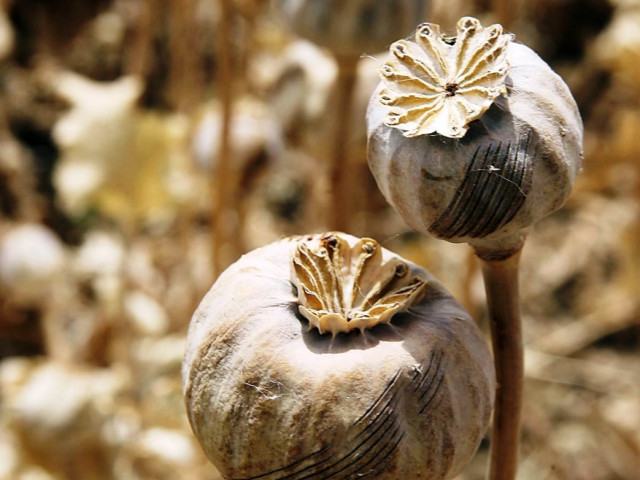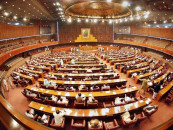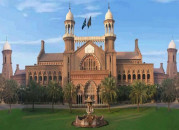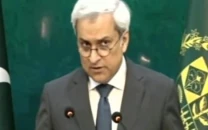In Torghar, an impasse on the fate of poppy cultivation
A meeting on Friday between district administration, tribal elders failed to conclusively resolve the issue.

Tribal leaders says that unemployment and lack of basic facilities force the people to continue their reliance on the banned crop. PHOTO: AFP/FILE
The Torghar district administration has been unable to convince the sceptical elders of the area to destroy their poppy crops.
Even though the administration has announced a development package as an incentive for the people to give up on poppy, the elders feel that the government has failed to deliver on its promises a number of times in the past for them to take it seriously. Seeds from the poppy plant can be used to make opium, which has led the government to impose a ban on the plant’s growth.
A meeting at a Darband rest house on Friday between tribal elders, Deputy Commissioner (DC) Fazalur Rehman and District Police Officer Shah Nazar Khan among others failed to conclusively break the impasse between the two parties.

DC Rehman expressed concern over cultivation of the banned crop in the remote areas inhabited by the Madakhel tribe. He asked the tribal elders to destroy the crop. He also warned of possible police action against violators.
To discourage poppy cultivation, he said, the government has announced uplift packages aimed to assist the farmers. However, despite such incentives, many people have continued to sow the crop, DC Rehman added.
As part of the development package, the district administration has sent the feasibility reports of three playgrounds, a bridge on Indus river near Kotkay, and construction of two hydel power plants, to the anti narcotics programme of the federal government, the official added.
The tribal elders — Ashrullah Khan, Maulana Habibur Rehman, Taj Malook Khan and Zarin Gul Khan — were unimpressed with the reassurance.

They said that the growers were forced to destroy their centuries-old cash crop when the Anti Narcotics Programme was launched in Pakistan in 1985, but the government could not fulfil its promise of bringing development in the area.
They also pointed out that when Torghar was given the status of a district, the Khyber-Pakhtunkhwa government had promised a number of development schemes and incentives that never materialised.
They added that unemployment and lack of basic facilities such as education, healthcare, water supply, electricity, road communication, agriculture development had forced the people to continue their reliance on the banned crop.
They promised, however, to voluntary destruction of the crop if the promised uplift schemes are implemented without delay.
Published in The Express Tribune, January 19th, 2013.


















COMMENTS
Comments are moderated and generally will be posted if they are on-topic and not abusive.
For more information, please see our Comments FAQ